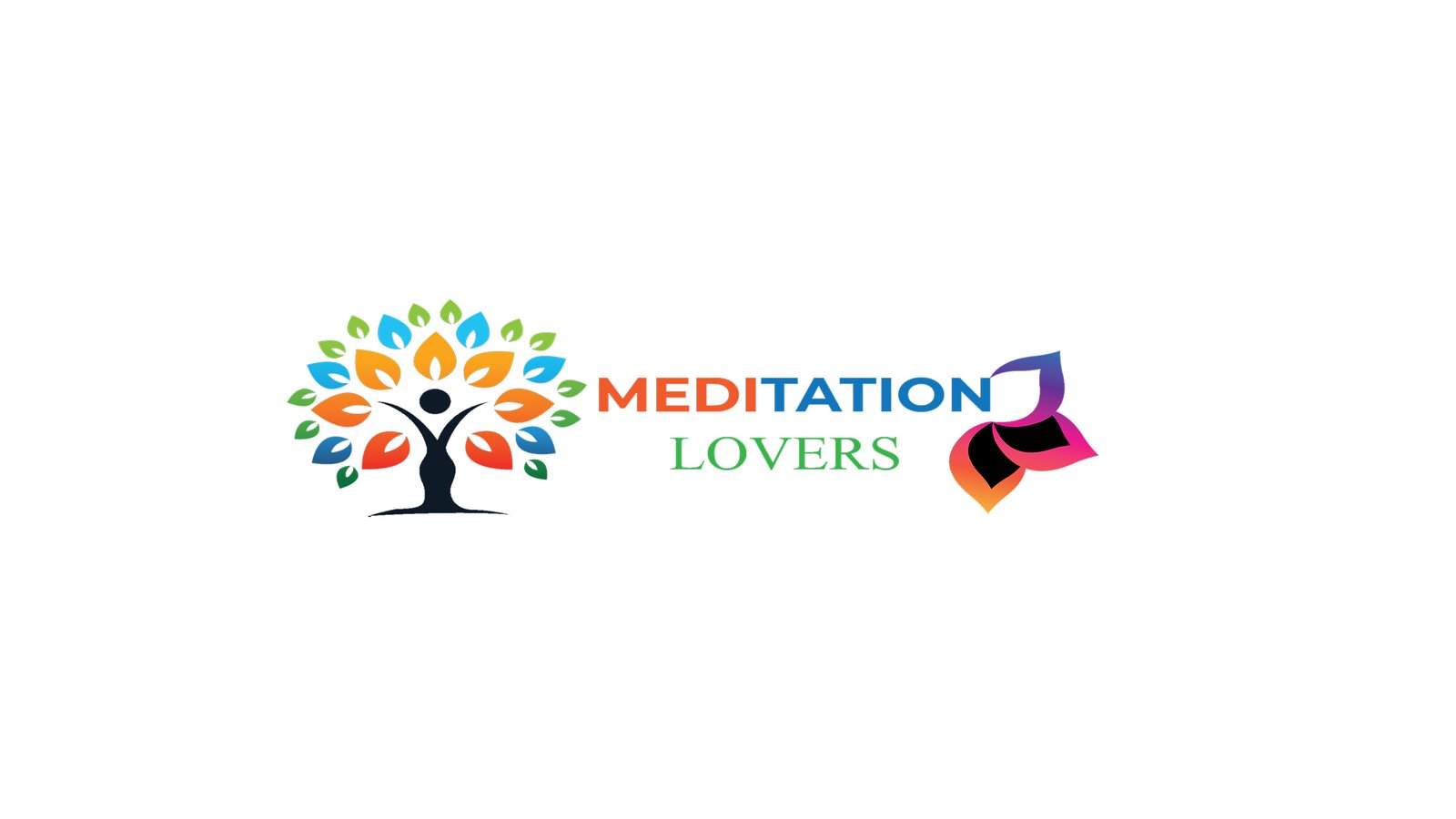

How Important is Eating Right for Meditation?
Meditation has emerged as a powerful tool for enhancing mental clarity, emotional stability, and overall well-being. It’s a practice that requires focus and a calm state of mind, which can be significantly influenced by our dietary choices. Understanding the link between nutrition and meditation sheds light on how important it is to eat right for achieving optimal meditative states.
First and foremost, the food we consume directly impacts our physical and mental health. Nutrient-rich foods fuel our bodies and brains, leading to improved cognitive function and better emotional regulation. A well-balanced diet consisting primarily of whole foods—fruits, vegetables, whole grains, lean proteins, and healthy fats—can help maintain steady energy levels and enhance mental clarity, which are essential for effective meditation practice.
When we eat heavy, processed, or sugary foods, our bodies can experience fluctuations in energy and mood. These fluctuations can lead to feelings of lethargy or agitation, making it more challenging to settle into a meditative state. For instance, consuming a large meal before meditation might lead to discomfort and distract from the experience. On the other hand, lighter snacks, such as fruits or nuts, can provide the necessary energy boost without weighing us down.
Moreover, certain foods possess qualities that can enhance our meditation practice. For instance, foods rich in omega-3 fatty acids, such as salmon and flaxseeds, have been linked to improved mood and cognitive function. Similarly, foods high in antioxidants, like berries and dark leafy greens, can reduce inflammation and support brain health. These nutrients not only promote overall wellness but also create a more conducive environment for meditation, allowing practitioners to focus more effectively.
Hydration is another crucial aspect of eating right that plays a significant role in meditation. Dehydration can lead to fatigue, headaches, and reduced concentration, all of which can hinder one’s ability to meditate. Drinking enough water throughout the day helps maintain optimal brain function and body performance, making it easier to achieve the level of mindfulness and tranquility that meditation offers.
It’s also important to consider the timing of meals in relation to meditation practice. Finding the right balance can enhance meditation experiences significantly. Many practitioners recommend waiting at least an hour after eating before beginning a meditation session. This allows the body to digest food properly, reducing the likelihood of distractions caused by physical discomfort.
Cultural dietary practices also influence how individuals approach nutrition and meditation. For instance, yoga practitioners often advocate for a vegetarian or plant-based diet, emphasizing the ethical and spiritual dimensions of food choices in relation to meditation practices. These dietary habits can help cultivate a mindful approach to eating, which parallels the mindfulness cultivated during meditation.
In conclusion, the significance of eating right for meditation cannot be overstated. Our dietary choices have a profound impact on our mental and physical states, influencing our ability to meditate effectively. By prioritizing wholesome foods, staying hydrated, and being mindful of meal timing, we can create an optimal environment for meditation. Ultimately, nurturing our bodies through proper nutrition can lead to deeper, more fulfilling meditation experiences, enhancing our journey toward inner peace and self-awareness.
Meditation vs. Medication for Anxiety: Which Path is Right for You?
In today’s fast-paced world, anxiety has become a common companion for many, leading us to
Exploring Anxiety Solutions
As we dive into the world of anxiety management, it’s essential to understand the various approaches available. Let’s explore the potential of meditation and medication, two popular methods for addressing anxiety, and how to choose the right path for
Why I Love Meditation and How It Transforms My Well-Being


Meditation has become a cornerstone of my daily routine, and I truly believe it’s one of the most powerful practices we can incorporate into our lives. The reasons why I love meditation are many, but they predominantly stem from the profound impact it has on my mental, emotional, and physical well-being.
First and foremost, meditation grants me a unique opportunity to step away from the chaos of everyday life. In a world filled with constant distractions—whether it’s the buzzing of our phones, the demands of work, or the noise of our thoughts—finding a moment of stillness is a gift. By committing to just a few minutes of meditation, I enter a space where I can focus on my breath, allowing the external noise to fade away. This process of centering myself cultivates a sense of peace that I carry with me throughout the day.
The mental clarity that arises from my meditation practice is another reason I cherish it so deeply. During sessions, I often find that my mind quiets down, allowing for deeper introspection. This reduction in mental clutter enables me to navigate challenges with a clearer perspective. A common experience I’ve had is that solutions seem to present themselves more readily after a meditation session; it’s as if the fog has lifted, and I can see the path forward with newfound insight.
Moreover, meditation serves as an emotional anchor. Life inevitably presents us with stress and uncertainty, but through consistent practice, I have developed a greater capacity to handle these emotions. In those moments of anxiety or overwhelm, meditation empowers me to observe my feelings without judgment, creating space between the trigger and my response. This has been incredibly liberating; instead of being swept away by a current of anxiety, I can sit with my emotions, understand them, and respond more mindfully.
An often overlooked aspect of meditation is its physical benefits. Research indicates that meditation can lower blood pressure, reduce chronic pain, and even improve sleep quality. On a personal level, I’ve noticed a decrease in tension throughout my body and an overall increase in my energy levels. These physical manifestations of well-being reinforce the connection between mind and body, and I feel as though I am nurturing both with this practice.
Meditation also fosters a sense of connection to something greater than myself. Whether it’s through guided visualization or mindfulness, there’s a profound experience of being part of a larger whole. This connectedness brings a sense of belonging and purpose that enriches my life drastically.
Finally, the community surrounding meditation is something I hold dear. Engaging with fellow meditation lovers has opened my heart and mind to different techniques and philosophies. Sharing experiences and learning from each other adds a layer of richness to the practice, affirming that we are not alone in our journey toward inner peace.
In conclusion, my love for meditation stems from its transformative power. It provides me with peace amidst chaos, clarity in turbulent times, emotional resilience, physical health benefits, and a sense of community. With each session, I feel more aligned with myself and the world around me, and I can confidently say that meditation has made a profoundly positive impact on my life. If you haven’t yet tried it, I encourage you to explore the practice and discover the wealth of benefits it can bring to your own journey.

Unlocking Inner Peace: The Power of Meditation
In a fast-paced world filled with constant noise and distractions, finding inner peace can feel like an elusive dream. However, one practice has stood the test of time as a powerful tool to cultivate serenity amidst chaos – meditation. Delving deep into the realms of your mind, meditation offers a sacred space where you can reconnect with your inner self and unlock a sense of tranquility that transcends the external world’s turbulence.
Embark on a journey of self-discovery and emotional healing as we explore the transformative power of meditation in this insightful article. Discover how this ancient practice can quiet the mind, reduce stress, and enhance overall well-being, helping you navigate life’s challenges with grace and resilience. Join us as we unravel the secrets to unlocking inner peace through the profound art of meditation.
Meditation is a practice that has been embraced by various cultures and traditions throughout history, serving as a means of achieving a deeper sense of awareness and connection with oneself. At its core, meditation involves focusing the mind and eliminating distractions, allowing individuals to explore their thoughts and emotions in a safe and controlled environment. This practice can take on many forms, but the central idea remains the same: creating a mental space to foster peace, clarity, and insight.
Traditionally rooted in spiritual and religious practices, meditation has evolved into a secular activity that anyone can engage in, regardless of their beliefs. It encourages practitioners to observe their thoughts without judgment, cultivating a sense of acceptance and understanding. This journey inward can reveal layers of self-awareness that often remain hidden in the chaos of daily life. In a world dominated by fast-paced living and incessant demands, meditation offers a sanctuary of stillness that can profoundly impact mental and emotional well-being.
Moreover, meditation is not about stopping thoughts or forcing the mind into silence; rather, it’s about acknowledging these thoughts and learning to let them pass. This acceptance can lead to a more profound understanding of oneself and one’s reactions to the world. The practice encourages individuals to be present in the moment, which can foster a richer experience of life. As we dive deeper into the benefits and practices of meditation, it becomes evident how this ancient art can unlock inner peace amidst the noise of modern existence.
The mental health benefits of meditation are both extensive and well-documented. One of the most significant advantages is its ability to reduce stress and anxiety. Engaging in regular meditation practice can lead to lower levels of cortisol, the hormone associated with stress, thereby promoting a calmer state of mind. This reduction in stress not only improves mood but also enhances overall emotional resilience, allowing individuals to navigate life’s challenges more effectively.
In addition to stress reduction, meditation has been shown to improve focus and concentration. As individuals practice mindfulness and learn to redirect their attention, they find it easier to concentrate on tasks at hand. This heightened focus can lead to improved productivity in both personal and professional settings. Furthermore, by fostering a sense of presence, meditation can help individuals break free from the cycle of negative thinking, leading to a more positive and optimistic outlook on life.
Another noteworthy benefit of meditation is its potential to alleviate symptoms of depression. Research indicates that regular meditation practice can lead to a reduction in depressive symptoms and an increase in emotional stability. By promoting self-compassion and acceptance, meditation encourages a healthier relationship with oneself. This newfound sense of self-love can be incredibly transformative, paving the way for improved mental health and overall well-being. As we explore the physical health benefits next, it becomes evident that the positive effects of meditation extend far beyond the mental realm.
While the mental health benefits of meditation are widely recognized, its impact on physical health is equally compelling. Numerous studies have demonstrated that meditation can lead to lower blood pressure, improved heart health, and enhanced immune function. By promoting relaxation and reducing stress, meditation helps the body maintain a healthier physiological state, which can be crucial in preventing chronic diseases.
Additionally, meditation can aid in pain management. Research has shown that individuals who practice meditation regularly report lower levels of pain and discomfort. This is likely due to the practice’s ability to alter the perception of pain, allowing individuals to approach their discomfort with a more mindful perspective. By learning to observe pain without reacting impulsively, practitioners can cultivate a more balanced response to physical sensations.
Moreover, meditation has been linked to better sleep quality. Many individuals struggle with sleep issues due to racing thoughts and anxiety, but incorporating meditation into one’s nightly routine can promote relaxation and prepare the mind for rest. A calmer mind leads to a more peaceful sleep environment, resulting in improved overall health and energy levels. With the various benefits outlined, it’s clear that meditation can play a crucial role in enhancing physical health, complementing its mental and emotional advantages.
The effectiveness of meditation has garnered significant attention from the scientific community, leading to an abundance of research that supports its benefits. Numerous studies have utilized neuroimaging techniques to observe changes in brain activity among individuals who meditate regularly. These studies have shown that meditation can lead to increased gray matter density in areas of the brain associated with emotional regulation, self-awareness, and empathy.
Further research has demonstrated that meditation can also influence the body’s stress response. For instance, studies have indicated that practitioners of mindfulness meditation exhibit lower levels of the stress hormone cortisol, which can contribute to a range of health issues when chronically elevated. This reduction in stress markers has been linked to improved mental health outcomes, including decreased anxiety and depression.
Moreover, randomized controlled trials have shown that meditation can be an effective intervention for various psychological disorders, including PTSD, anxiety disorders, and depression. These findings highlight meditation’s potential as a complementary treatment alongside traditional therapeutic approaches. As the body of evidence continues to grow, it solidifies meditation’s place as a scientifically validated practice for enhancing well-being and promoting resilience in the face of life’s challenges.
Meditation encompasses a diverse range of practices, each with its own unique approach and focus. One of the most well-known forms is mindfulness meditation, which involves paying attention to the present moment while observing thoughts and sensations without judgment. This practice cultivates awareness and acceptance, helping individuals develop a deeper understanding of their internal experiences.
Another popular type is loving-kindness meditation, which focuses on fostering feelings of compassion and love towards oneself and others. This practice encourages individuals to repeat phrases of goodwill and kindness, gradually expanding their feelings of love and empathy towards a wider circle of beings. Research has shown that this form of meditation can enhance emotional well-being and improve interpersonal relationships.
Transcendental Meditation (TM) is another widely practiced technique that involves silently repeating a specific mantra to settle the mind into a profound state of rest. TM is known for its simplicity and accessibility, making it appealing to many individuals seeking a structured meditation practice. Other forms include guided meditation, body scan, and Zen meditation, each offering unique benefits and approaches to cultivating awareness and inner peace. By exploring these diverse practices, individuals can find the one that resonates most with them, allowing for a more personalized meditation journey.
Starting a meditation practice may seem daunting, but it can be a straightforward and rewarding endeavor. The first step is to create a dedicated space for meditation, free from distractions. This could be a quiet corner of your home, a garden, or any place where you feel comfortable and at ease. Setting up a designated area signals to your mind that it’s time to engage in this introspective activity.
Once you have your space, begin by choosing a specific time each day to meditate. Consistency is key in establishing a practice, so find a time that fits into your daily routine. Whether it’s first thing in the morning or before bed, dedicating a few minutes each day can lead to lasting benefits. Start with short sessions, perhaps just five to ten minutes, gradually increasing the duration as you become more comfortable with the practice.
To ease into meditation, consider utilizing guided meditations available through apps or online platforms. These resources can provide structure and support, especially for beginners. Alternatively, you can practice mindfulness by simply focusing on your breath, observing the sensations as you inhale and exhale. Remember, the journey of meditation is personal, and it’s essential to be patient and compassionate with yourself as you embark on this transformative path.
Enhancing your meditation experience can lead to deeper insights and a greater sense of peace. One effective tip is to establish a routine. Consistency helps to signal to your mind that it’s time to enter a meditative state, making it easier to settle in and focus. Try to meditate at the same time every day, allowing your body and mind to adapt to this new rhythm.
In addition, consider incorporating elements that promote relaxation and focus, such as soothing music, candles, or essential oils. These sensory experiences can create a calming atmosphere that enhances your ability to concentrate. However, it’s essential to keep the environment simple and not overly stimulating, as this can detract from the meditative experience.
Another valuable tip is to practice self-compassion during your sessions. It’s normal for thoughts to arise, and rather than getting frustrated, gently acknowledge them and return your focus to your breath or chosen point of concentration. This attitude of kindness towards oneself fosters a more profound sense of acceptance and serenity, allowing for a richer meditation experience.
For those new to meditation, several techniques can ease the transition into this practice. One of the simplest methods is breath awareness meditation. This involves focusing your attention on your breath, observing the natural rhythm of inhalation and exhalation. Whenever your mind wanders, gently guide your focus back to your breath. This technique cultivates mindfulness and helps you develop the ability to concentrate.
Another beginner-friendly approach is the body scan meditation. This technique encourages practitioners tobring awareness to different parts of the body, starting from the toes and moving upwards. As you focus on each area, notice any sensations, tension, or relaxation present. This practice can enhance body awareness and promote a sense of relaxation, making it an excellent starting point for those new to meditation.
Finally, guided meditations are an excellent resource for beginners. Many apps and online platforms offer guided sessions that provide direction and support. These recordings can lead you through the meditation process, making it easier to stay focused and engaged. As you become more familiar with meditation, you can gradually explore other techniques and find what resonates best with you.
For those who have been practicing meditation for some time, exploring advanced techniques can deepen your experience and enhance personal growth. One such practice is mantra meditation, where practitioners silently repeat a specific word or phrase to help focus the mind. This technique can facilitate a profound state of tranquility and self-awareness, allowing for deeper exploration of consciousness.
Another advanced method is vipassana meditation, which encourages practitioners to observe thoughts and feelings as they arise, without attachment or identification. This technique fosters a heightened sense of awareness and can lead to significant insights about the nature of the mind and emotions. Engaging in vipassana can be a challenging yet rewarding journey, often requiring dedicated retreats to fully immerse oneself in the practice.
Lastly, advanced practitioners may explore contemplative meditation, which involves reflecting on specific themes or questions. This method encourages deep introspection and can lead to transformative insights about oneself and one’s place in the world. Whether focusing on concepts such as impermanence, compassion, or interconnectedness, contemplative meditation allows for profound personal exploration and growth. As you delve into these advanced practices, remember to approach them with an open heart and mind, embracing the journey of self-discovery.
In a world filled with distractions and demands, meditation stands as a beacon of hope for those seeking inner peace. Its transformative power has been recognized across cultures and generations, offering a pathway to reconnect with oneself amidst the chaos of daily life. By understanding the benefits of meditation for both mental and physical health, individuals can harness this ancient practice to cultivate resilience and emotional well-being.
As we have explored, there are various techniques and practices available to accommodate beginners and advanced practitioners alike. Whether through mindfulness, loving-kindness, or contemplative meditation, each method provides unique opportunities for self-discovery and growth. By establishing a consistent practice and embracing the journey with patience and compassion, individuals can unlock the profound serenity that lies within.
Ultimately, meditation is more than just a practice; it is a way of being. By integrating meditation into your daily routine, you can cultivate a deeper sense of connection with yourself and the world around you. In doing so, you will find that inner peace is not an elusive dream but an attainable reality that can enhance every aspect of your life. Embrace the power of meditation, and embark on a transformative journey towards lasting tranquility and self-awareness.


 What is trending in February 2025
What is trending in February 2025
- Xander Zayas Outbattles Jorge Garcia To Earn His First World Title! Top Rank Boxing
- 11 injured in Walmart stabbing incident in Traverse CityOfficials say 11 people were injured in a Walmart stabbing incident in Traverse City on Saturday.WXYZ-TV Detroit | Channel 7
- Fortnite Chapter 6 Season 3 | Super Showdown Story Event Teaser Fortnite
- HUGE KO! Emiliano Vargas Demolishes Alexander Espinoza In The First Round Top Rank Boxing
- First Win On Pre-Season Tour! | Man Utd 2-1 West Ham Manchester United
- DO THIS BEFORE IT'S PATCHED! Infinite Kitsune Chests in Grow a Garden! KroBlox
- An Exclusive Sneak Peek Backstage feat. Sam Reid | The Vampire Lestat | Coming 2026 amc+
- 12-Year-Old Sings Frank Sinatra Like a PRO Talent Replay
- This Is The Only Way To Settle This Debate JxmyHighroller
- Multiple people stabbed at Walmart in Traverse City WOOD TV8



